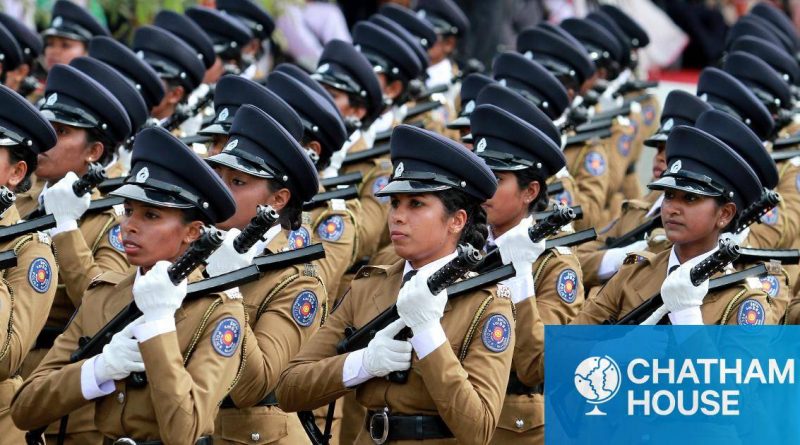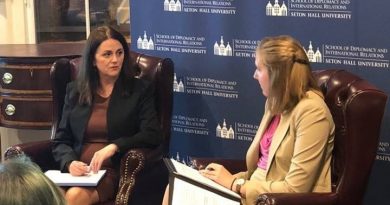Chatham House Hosts Dialogue on Role of Women in National Defense
Alex Lee
Staff Writer
On March 8, Chatham House hosted a panel consisting of female guests in the defense sector. Speakers included Dr. Andrea Ellner, a Lecturer in the Defense Studies Department at King’s College London; Ivanna Klympush-Tsintsadze, a senior member of the Ukrainian Parliament and a strong advocate for the role of women in the armed forces; Dr. Hanna Ketola, a Research Associate at the University of York; and Colonel Hannah Stoy, the Deputy Assistant Chief of Personnel at the headquarters Field Army.
Dr. Ellner first gave a brief history on Transatlantic militaries, including military ethics. She points out that throughout history, many have believed that women could not do certain things—particularly military service. However, since the end of the Cold War, women have had more opportunities in the military. Women were given access to combat role. Including women in aspects of military operation such as combatting insurgencies broadened the recruitment pool of potential fighters, the panel explains. The United Nations (UN) called for more women to be involved in the armed forces and in peacekeeping operations. For Dr. Ellner, broadened inclusion of women within the military is only effective if military culture is transformed so a spectrum of solutions to conflict can be seen through the lens of gender, which will lead to a culture that can resolve problems in a more nuanced method.
Klympush-Tsintsadze spoke specifically about the impact of women in the current war in Ukraine. She noted the increase in women in the armed forces is due to the need to fill the ranks. Of the 60,000 women serving in Ukraine’s armed forces, 5,000 are involved in direct combat operations. Of those, 105 were killed in action, over 100 were wounded in action, and 50 are missing in action. Although the women defend the sovereignty and independence of Ukraine with the same resolve as men, Tsintsadze explains, women in Ukraine’s military are still encountering a glass ceiling, as they are still being told that certain roles are “not for them.” Women also did not have any presence on either the Ukrainian or Russian negotiation teams during the early stages of the war.
Dr. Ketola spoke about women in insurgency and asymmetric warfare. She questioned whether women are truly being utilized in military movements, and whether women view their efforts as being a valuable contribution. Another factor she mentions is the common false assumption that female fighters share a common agenda, when in fact they might not have such intentions. Further, women in insurgencies are often categorized as noncombatants or merely women associated with armed groups. Women ex-fighters can change gender norms as they now have access to many of the same services and similar status as male ex-fighters.
Colonel Stoy shared a brief overview of her career, which began when she was 14 years old. She joined the Royal Signal Corps, aiming to get close to action and adventure. While she was at Sandhurst Military Academy, she watched the unfolding of the September 11, 2001 terrorist attack on the United States, and knew that the event would change her military career profoundly. She deployed to Kosovo, Afghanistan, and Iraq in 2003 and 2004. During her time in the service, she found that she did not encounter many barriers to her service. She believed that hard work and good results would advance her career. She is a strong believer that women should be included in all aspects of the military, including design and in strategy.
Toward the end of the event, speakers shared recent progressions concerning women’s roles in military. Colonel Stoy shared that the UK recently introduced a zero-tolerance policy for sexual assault in the military, a major progression for British defense forces. Klympush-Tsintsadze expressed final remarks at the close of the panel, sharing that as both men and women within the Ukrainian military demonstrate incredible resilience, she hopes that the inclusiveness will leave a lasting impact on society.
Image Courtesy of Chatham House



